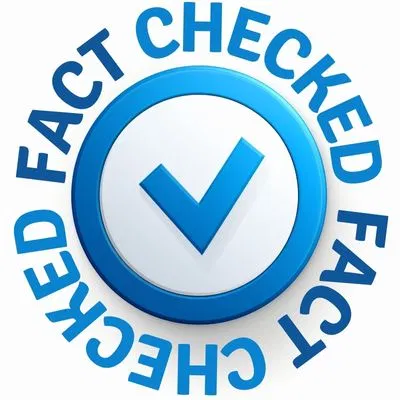Digital Marketing Scams: What Are They and How to Avoid?

Published February 28, 2024
In the digital age, businesses use digital marketing for success. Yet, they face scams undermining them. Picture this: you invest time, energy, and resources to build an online presence. Only to fall victim to online marketing scams. The scams range from fake social media followers to deceitful ad clicks. Sadly, they cause financial losses and harm to reputation.
In this article, we’ll take a closer look into the world of digital marketing scams. Let’s explore their forms, risks, and defense strategies. Learn how to protect your business from these deceptive tactics in this risky landscape.

Dangers Of Digital Marketing Scams
Digital marketing revolutionizes business promotion. It provides a worldwide reach and unveils vulnerabilities, such as scams. Businesses need to grasp digital fraud to safeguard their reputation and consumer confidence.
Highlighted below are some of the perils associated with these fraudulent activities:
- Wasted resources. Digital marketing scams waste resources. For instance, buying fake followers or falling for lead generation fraud. Misleading practices can distort your perception of actual interest, impacting marketing strategies.
- Financial damage. Click fraud is a significant risk in digital marketing. Advertisers pay for fake clicks, which causes financial losses.
- Harm to marketing campaigns. Ad fraud, mainly by bad bots, disrupts digital marketing campaigns. This leads to annual financial losses and reduced marketing effectiveness.
- SEO penalties. Falling for SEO scams with quick results can lead to penalties. Search engines may demote or de-index your website. This impacts online visibility and organic traffic.
- Damage to brand reputation. Scams like fake followers and click farms harm brand reputation. Building a solid brand relies on authenticity and trust. Deceptive practices can erode them.
Types Of Digital Marketing Scams To Avoid
Various forms of digital marketing scams target both individuals and businesses. Safeguard your digital presence by understanding scams and protecting against online threats.
1. Business Directory Scams
In these scams, fraudsters deceive businesses into paying for listings in directories that either don’t exist or have minimal traffic. In most cases, they use aggressive sales tactics. They also make false affiliations with reputable organizations.
2. Promises Of Fast SEO Results
SEO scams frequently entice with speedy improvements in search engine rankings. These entities commonly use black hat SEO strategies, such as keyword stuffing and link farming. Sadly, there’s a high risk of getting penalties imposed by search engines.

3. Social Media Click Farms
Click farms involve a deceptive scheme in which numerous workers or bots are employed to click on paid advertising links. This tactic falsely boosts the apparent popularity of a webpage or digital advertisement.
4. Falsified Back Catalog
This deceptive scheme involves an agency or freelancer falsely asserting they have serviced renowned clients to enhance their reputation. Despite their claims, they lack any genuine affiliation with these companies or their marketing endeavors.

5. Pay-Per-Click Fraud
Pay-per-click fraud occurs when scammers repeatedly click on a company’s online advertisements. They do this to deplete the company’s advertising budget. Bots or click farms typically orchestrate these clicks. They lack genuine engagement and don’t lead to actual sales.
6. Domain Name Renewal Scam
This scam mainly targets businesses. It uses an official-looking notice stating their domain name is nearing expiration. The notice directs them to renew by paying a fee to a company that’s not their legitimate domain registrar.
7. Lead Generation Fraud
Fraudulent practices involve the sale of “leads” to businesses, which often turn out to be fake, outdated, or unqualified. Sadly, businesses expend resources attempting to convert these leads into customers.
8. Buy Followers Scam
Businesses should be cautious of services that promise to boost social media followers for a price. These followers are fake accounts or bots that don’t add any value to real engagement or business development.
9. Domain Spoofing
Domain spoofing occurs when scammers fabricate a deceptive website or email address. The fake ones strikingly mimic legitimate ones. The tactic aims to deceive users into sharing sensitive information. It also aims to trick them into making financial transactions.

10. Click Spamming And Injection
Click spamming is the act of producing false clicks on a business’s online ads. This can be achieved using software (click injection). It clicks on ads automatically without human involvement.
11. Cookie Stuffing
Cookie stuffing occurs when a third party covertly places a cookie on a user’s device. This enables them to receive commissions for sales they had no part in generating.
12. Ad Stacking
Ad stacking occurs when several ads are layered on top of one another within a single ad slot. While only the topmost ad is viewable by users, advertisers are billed for all ads in the stack.
13. Pixel Stuffing
Pixel stuffing is a deceptive technique. A full-sized ad is crammed into a minuscule, invisible pixel on a webpage. Despite being invisible to users, the ad falsely registers as displayed, deceiving advertisers. In most cases, bad bots are employed to produce a large number of ad impressions.

How To Avoid Online Marketing Scams
Mitigating digital marketing scams demands vigilance, expertise, and adherence to industry best practices. Explore the following strategies to navigate away from these deceitful tactics effectively:
- Request references. Before engaging a digital marketing agency or professional, seek references. Diligently follow up on them. The process can offer valuable insights into their credibility. It can also reveal the caliber of their work.
- Exercise caution with promises. Be cautious of individuals or organizations that make grandiose promises. For example, guaranteeing a surge of 10,000 followers or a specific number of blog comments in exchange for payment. Such assurances often signal potential scams.
- Validate work history and credentials. Make sure the agency or professional has a strong history in digital marketing. Newcomers to the field may not necessarily be fraudulent. It’s paramount to verify their credentials and previous projects.
- Stay educated. Stay abreast of prevalent scams and their modus operandi. Doing so equips you to detect and steer clear of fraudulent schemes readily.
- Conduct thorough research. Perform extensive research on any digital marketing service you plan to engage in. Scrutinize reviews, testimonials, and warning signs that may hint at deceptive practices.
- Seek a second perspective. When uncertain about a digital marketing service, soliciting a second opinion proves beneficial. This extra viewpoint can furnish valuable insights to facilitate a well-informed decision.
- Utilize independent measurement tools. Safeguard against ad fraud by using impartial, unbiased measurement tools. These tools provide objective data on your digital marketing efforts.
Frequently Asked Questions About Digital Marketing Scams
1. Is digital marketing legit?
Digital marketing is a legitimate industry, but the question often arises – “Is freelance digital marketing legit?” Like any field, it’s not immune to scams. Some fraudulent practices claim to be “digital marketing.” For example, buying followers, promising quick SEO results, and offering custom websites at unrealistically low prices. These scams can create doubt about the industry’s legitimacy as a whole.
2. What are the clear signs of a digital marketing scam?
Indicators of a digital marketing scam include a lack of results, no real value, and actions that don’t match stated principles.
3. What are freelance digital marketing scams?
Freelance digital marketing scams lure victims with false promises. They claim victims will get fast, outrageous returns in exchange for money. They may offer custom websites at discounted rates, expedited SEO services, or the purchase of fake followers.
4. What is a digital marketing course scam?
A digital marketing course scam usually entails deceptive schemes masquerading as educational opportunities. These fraudulent tactics frequently pledge rapid, effortless success and large profits. However, they lack substantive content, mentorship, or support.

Navigating The Perils Of Digital Marketing Scams
Digital marketing scams pose a significant threat to businesses. They cast a shadow over the vast opportunities the online realm offers. However, armed with a clear understanding of these scams and their potential dangers, companies can take proactive steps to safeguard their marketing efforts. Navigate the digital landscape. Be vigilant and knowledgeable to defend against deceptive practices. Stay informed and alert, and empower your business to thrive in the digital age.
Hire The Digital Marketing Experts
We take online businesses and turn them into online empires by employing smart digital marketing strategies. Our team of experts are trained in a myriad of marketing skill including SEO to help you rank higher in search results, and ad management to ensure your message gets seen by the people you want. Need a business website that attracts business? We also specialize in website design and online sales optimization to help your business grow like never before.

This Content Has Been Reviewed For Accuracy By Experts
Our internal team of experts has fact-checked this content. Learn more about the editorial standard for our website here.

About The Author
Hi, I’m Corinne Grace! As an experienced writer holding a bachelor’s degree from Riverside College, I excel in creating articles supported by thorough research. Specializing in a wide range of topics like marketing and law, I craft engaging stories that connect with my readers. I continuously work to refine my skills to adapt to the ever-changing digital world.



